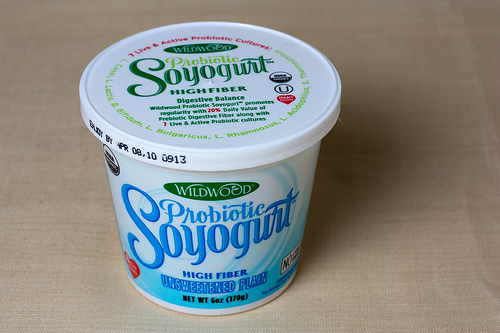One thing that registered dietitian and president of Personalized Nutrition, Katherine Tallmadge, noticed about her clients is that most of those who lost weight incorporate foods rich in good bacteria in their diet.
Bacterial organisms found in the digestive tract are collectively known as microbiome. Aside from keeping the digestive tract healthy, it also helps maintain a healthy weight.
Probiotics and Prebiotics
According to Jo Ann Hattner, co-author of Gut Insight as well as dietitian consultant at the Stanford University School of Medicine, probiotics are better paired with foods known as prebiotics. With prebiotics, good bacteria are better optimized and their processes are improved. Prebiotics are mostly fermentable carbohydrates and non-digestible fibers. Aside from improving digestive processes, it can also decrease harmful bacteria in the gut such as E.coli, Salmonella and Campylobacter.
How to Maintain a Healthy Microbiome
Yogurt is perhaps the most popular food rich in probiotics. Yogurt contains live microorganisms that can help maintain a healthy environment in the digestive tract. If you are looking for an alternative, soy yogurt is equally effective. There are also many probiotic drinks available in the market. One of them is milk kefir. It is made by adding kefir grains into a goat, sheep or cow’s milk to ferment it.
As previously mentioned, prebiotics is another food group that should be part of your diet as well. Some of the suggested prebiotics include fiber rich fruits such as apples, bananas and raisins; anti-oxidants such as berries and kiwifruit; beans, lentils and chickpeas; garlic, leeks and green onions; green tea; honey; and almonds.
Breastfeed you baby for as long as you can. Breastmilk contains colostrum, vitamin A and C and calcium. It is low in cholesterol and sodium. Not only that, according to the American Pregnancy Association, it contains several proteins which helps keep a healthy microbiome in the baby’s gut. Among those beneficial proteins include the bifidus factor, lactoferrin, lysozyme and secretory IgA.
Always use artificial sweeteners with caution. If taken in large amounts, artificial sweeteners can alter your gut microbiome, which often results to glucose intolerance. Furthermore, it can also result to an increase in body fat and a decrease in insulin absorption.
An ongoing study found that meat consumption can also have a negative impact on microbiome. This has been discussed during the National Institutes of Health conference but presently, the process is not fully determined.
There are many reasons why you should need to maintain a healthy digestive system with adequate amounts of microbiome. It may come as a surprise that a simple disruption in our gut bacteria levels can have an impact on the different organs in the body. It is therefore, important that we always incorporate probiotics and prebiotics in our diet. Nothing beats natural sources such as fresh fruits and vegetables. Do not rely on probiotic pills to give you the amount that you need. So far, no brand has passed the health claim test according to the National Institutes of Health.
Photo credit: Veganbaking.net on Flickr







